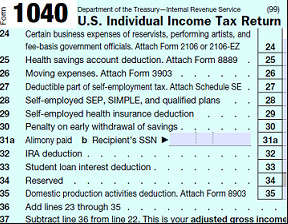Just about everyone would really like to reduce his or her taxable income. Well, believe it or not, it’s actually not hard to do so,
especially if you’re someone who has investments.
The first step for
reducing taxable income is to make sure that your investment accounts are
varied. Ideally, you should have both tax-free and tax-deferred accounts for
maximum tax benefits
This simple strategy, known as asset location, works for a
variety of reasons, including the facts that:
l
You’ll enjoy lower taxes on both long-term
capital gains and qualified dividend income if you have varied accounts
l
Outside of those related to your retirement
account, you won’t have to report interest income or short-term capital gains
as taxable unless you make an account withdrawal
l
Outside of retirement accounts, you can sell
losing investments for capital losses
As you can see, having a wide
variety of different types of investment/retirement accounts can really work in
your favor. Of course, just going out and open a bunch of varied accounts isn’t
the way to go about it if you want to receive maximum benefits.You have to be
strategic and know what you’re doing!
If you need a little help with
that “knowing what you’re doing part,” and, let’s face it, most of us do, don’t
worry! There are skilled tax professionals/financial advisers out there who
will gladly help you to make the smartest choices for your situation- choices
that will help you to diversify your investment portfolio and to receive
maximum rewards as a result.




















